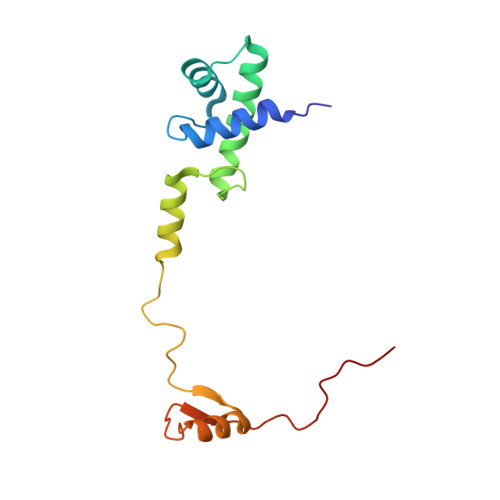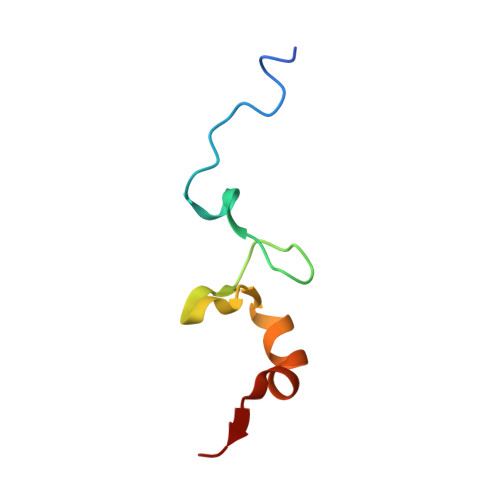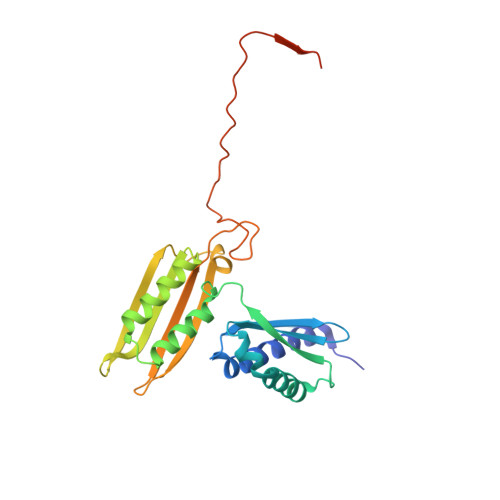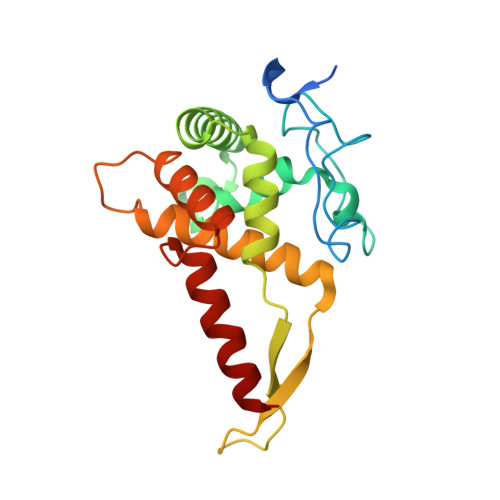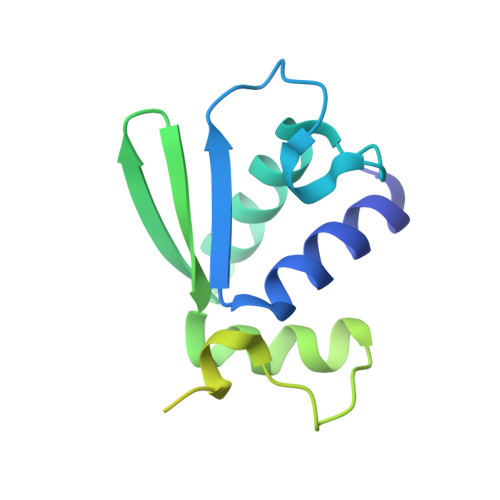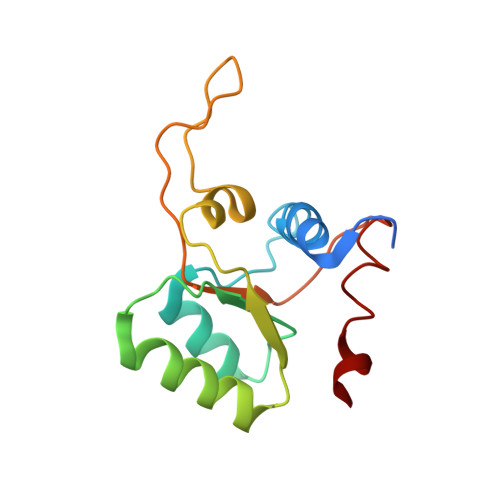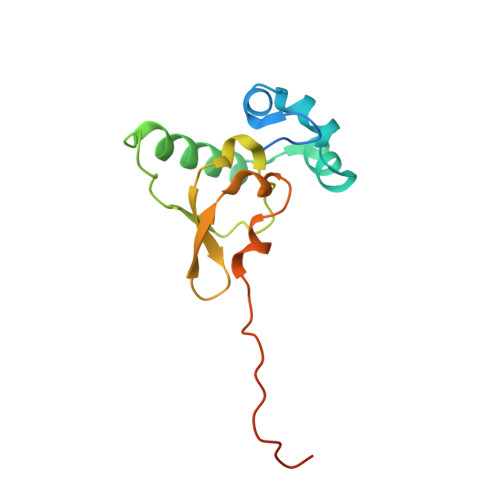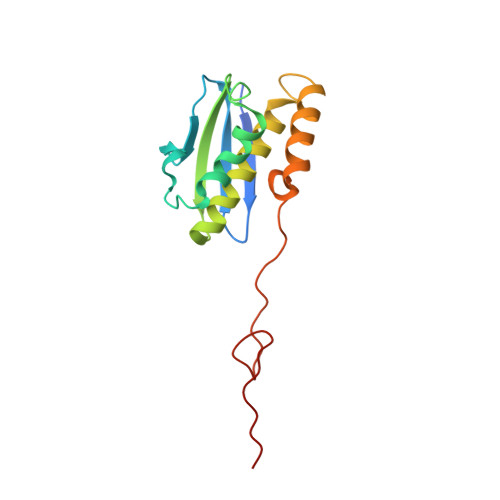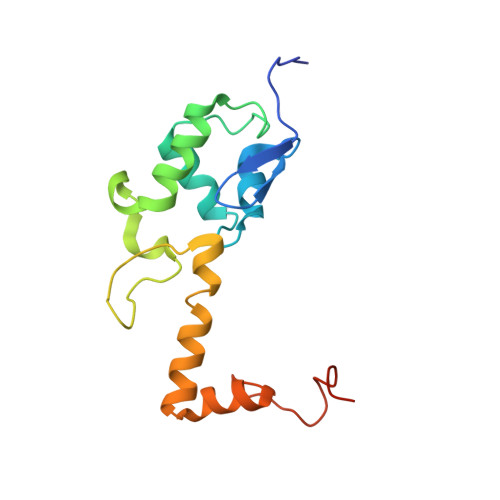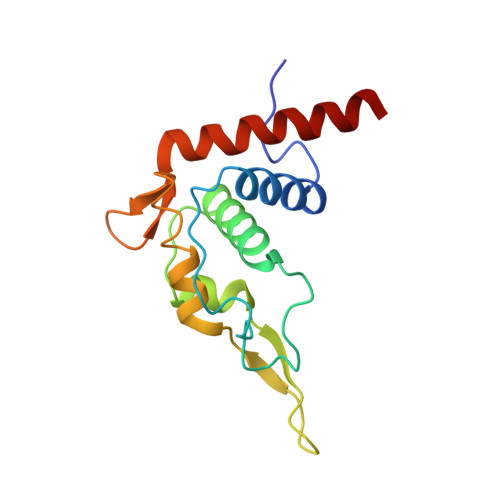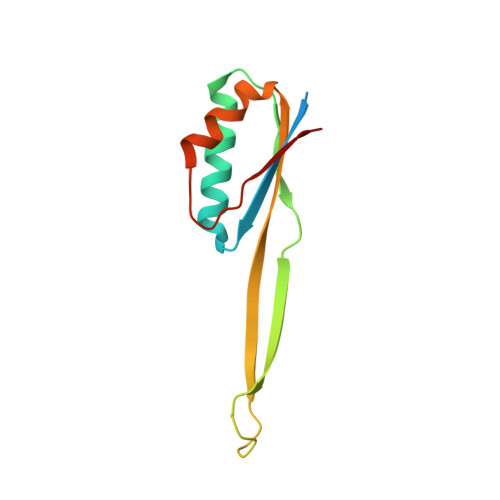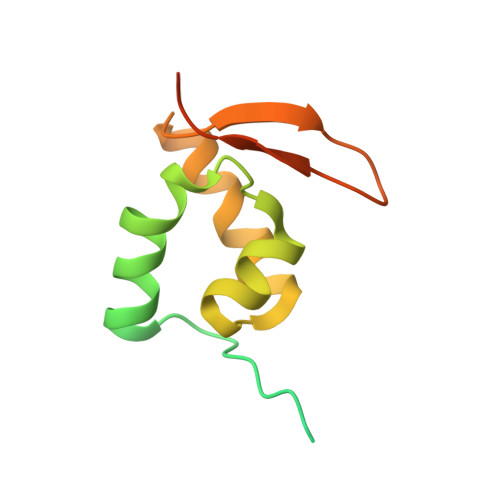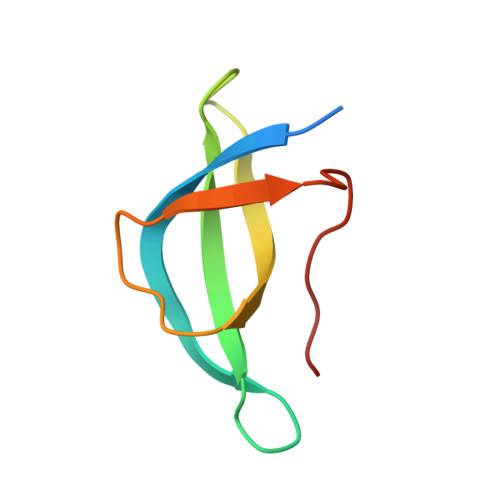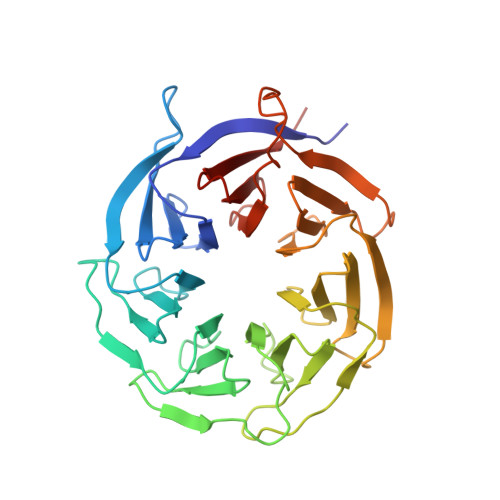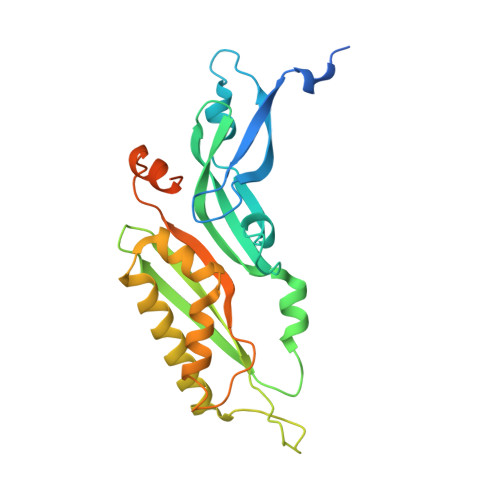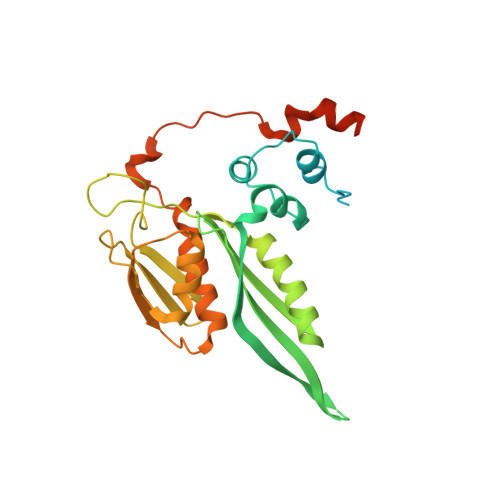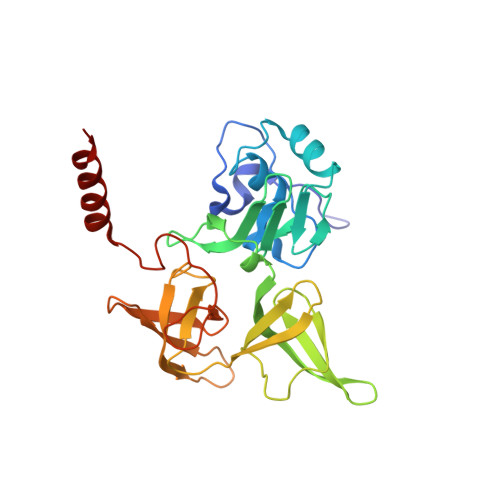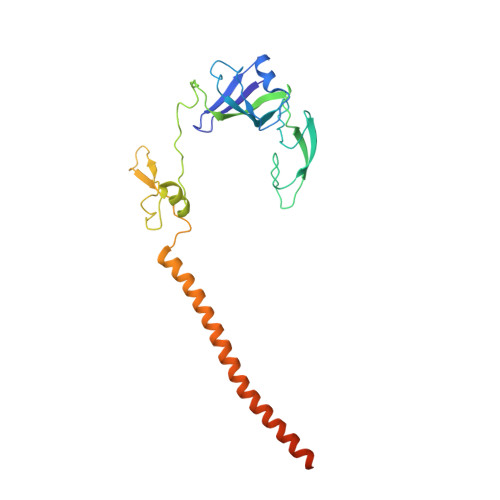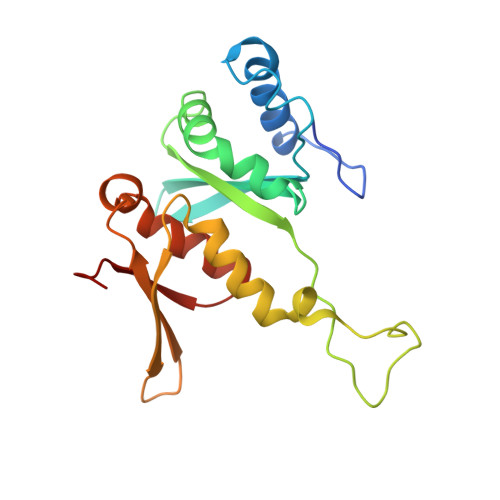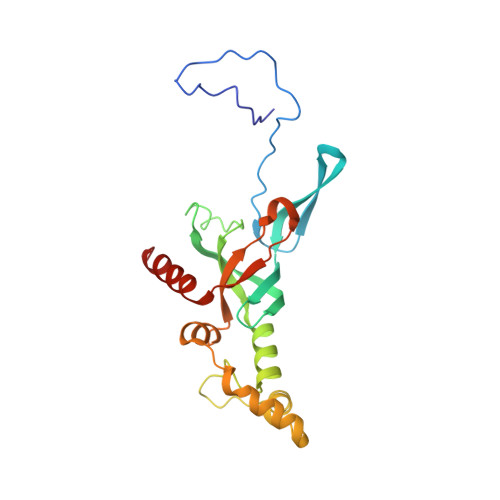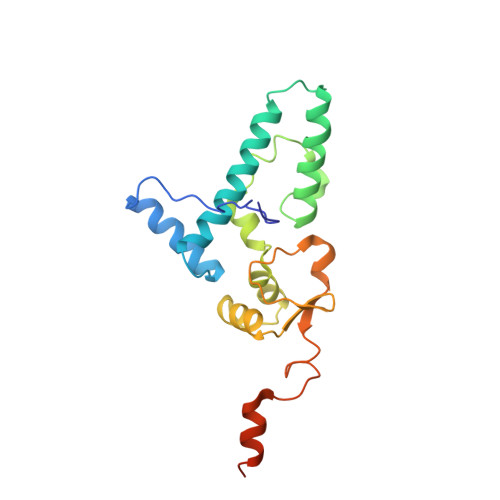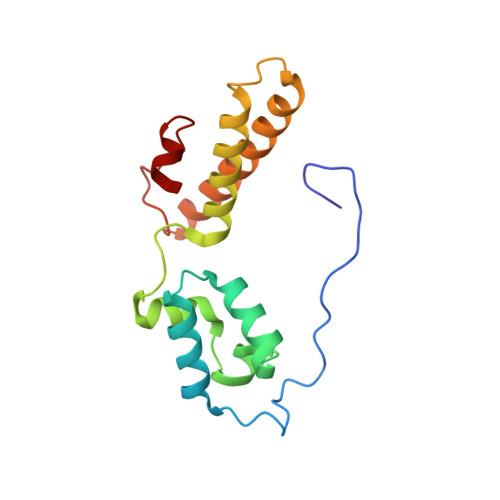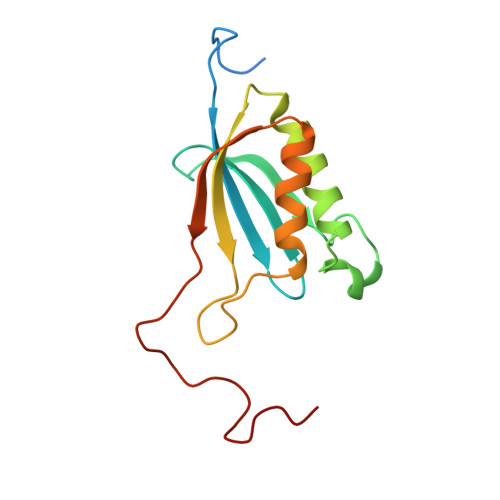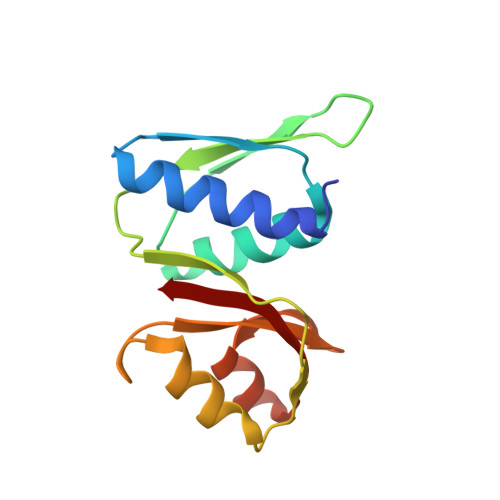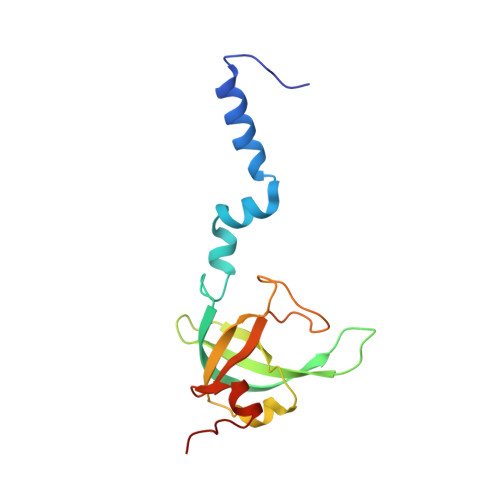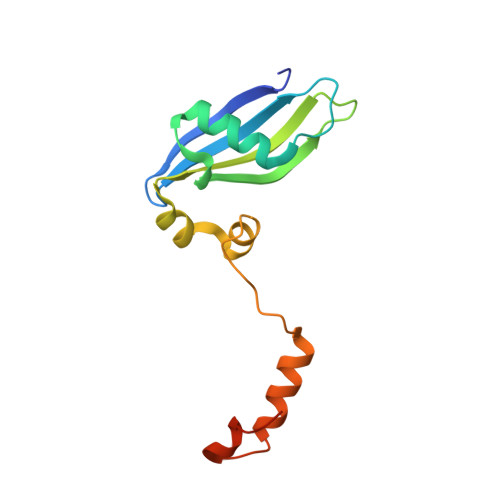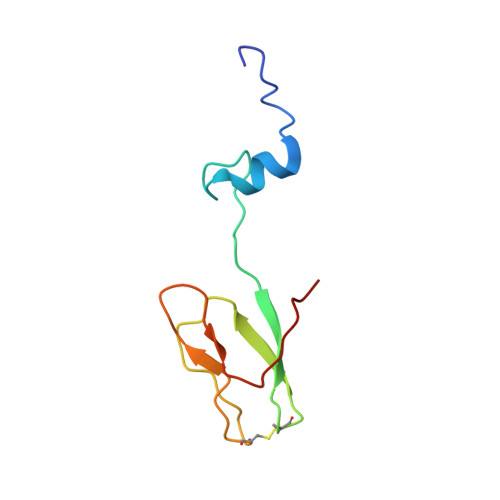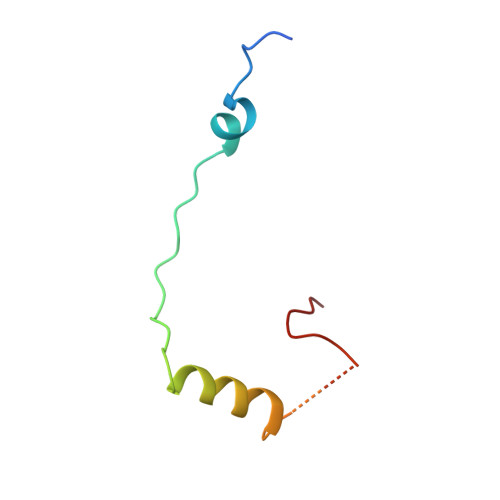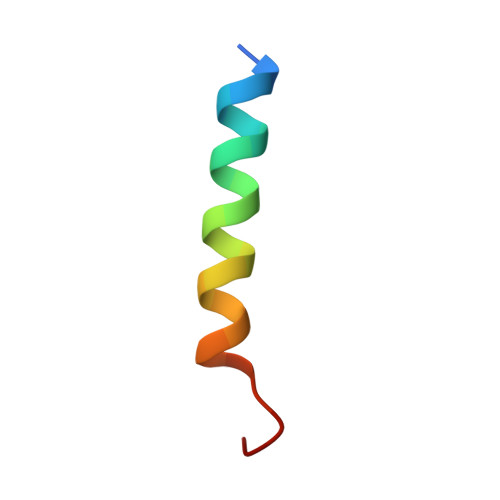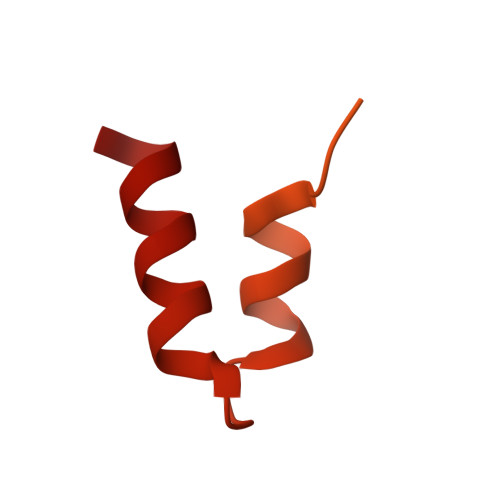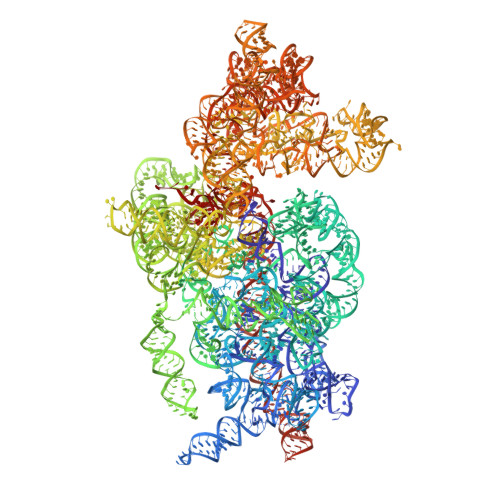SARS-CoV-2 Nsp1 suppresses host but not viral translation through a bipartite mechanism.
Shi, M., Wang, L., Fontana, P., Vora, S., Zhang, Y., Fu, T.M., Lieberman, J., Wu, H.(2020) bioRxiv
- PubMed: 32995777
- DOI: https://doi.org/10.1101/2020.09.18.302901
- Primary Citation of Related Structures:
7K5I - PubMed Abstract:
The Severe Acute Respiratory Syndrome Coronavirus 2 (SARS-CoV-2) is a highly contagious virus that underlies the current COVID-19 pandemic. SARS-CoV-2 is thought to disable various features of host immunity and cellular defense. The SARS-CoV-2 nonstructural protein 1 (Nsp1) is known to inhibit host protein translation and could be a target for antiviral therapy against COVID-19. However, how SARS-CoV-2 circumvents this translational blockage for the production of its own proteins is an open question. Here, we report a bipartite mechanism of SARS-CoV-2 Nsp1 which operates by: (1) hijacking the host ribosome via direct interaction of its C-terminal domain (CT) with the 40S ribosomal subunit and (2) specifically lifting this inhibition for SARS-CoV-2 via a direct interaction of its N-terminal domain (NT) with the 5' untranslated region (5' UTR) of SARS-CoV-2 mRNA. We show that while Nsp1-CT is sufficient for binding to 40S and inhibition of host protein translation, the 5' UTR of SARS-CoV-2 mRNA removes this inhibition by binding to Nsp1-NT, suggesting that the Nsp1-NT-UTR interaction is incompatible with the Nsp1-CT-40S interaction. Indeed, lengthening the linker between Nsp1-NT and Nsp1-CT of Nsp1 progressively reduced the ability of SARS-CoV-2 5' UTR to escape the translational inhibition, supporting that the incompatibility is likely steric in nature. The short SL1 region of the 5' UTR is required for viral mRNA translation in the presence of Nsp1. Thus, our data provide a comprehensive view on how Nsp1 switches infected cells from host mRNA translation to SARS-CoV-2 mRNA translation, and that Nsp1 and 5' UTR may be targeted for anti-COVID-19 therapeutics.
- Department of Biological Chemistry and Molecular Pharmacology, Harvard Medical School, Boston, MA 02115, USA.
Organizational Affiliation:








